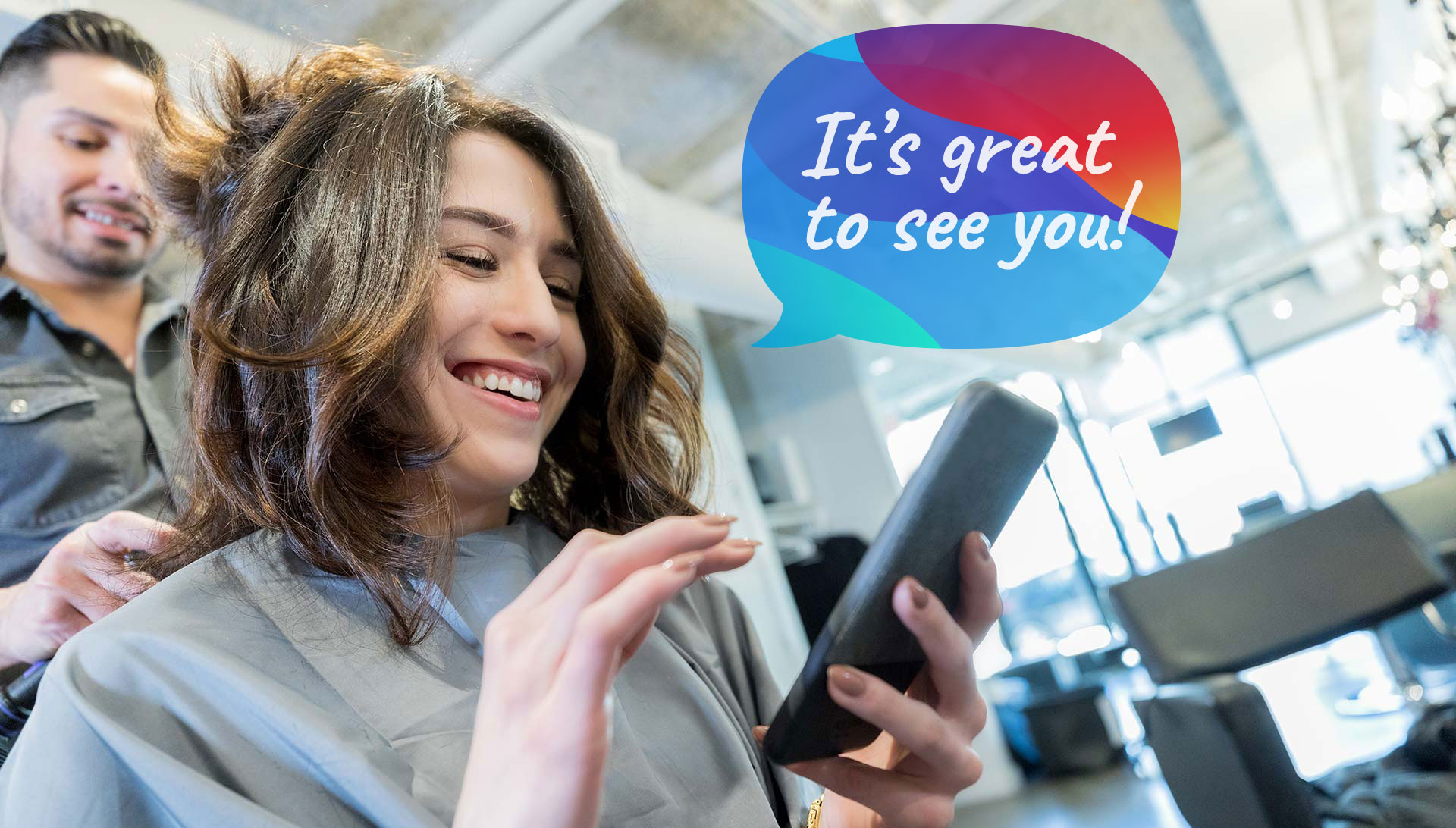Break the ice
Salons and spas have long been known as places where clients go to relax and have good conversations, and as members of the service industry, communication is a vital skill for salon and spa professionals.
Conversations are the point from which relationships are built. They help salon and spa professionals build rapport with their clientele. Positive rapport with clients builds loyalty. The more loyal customers are, the more likely they are to become long-term clients and bring in new ones through referrals.
Here are few things salon and spa professionals should keep in mind when it comes to conversations.

Consultations and Ongoing Assessments
Consultations are typically thought of as an initial conversation with clients. That’s true.
When new clients visit a salon, salon and spa professionals should take the time to understand their clients’ need and develop a plan to help them address their needs.
That initial consultation should include discussing the services clients are currently receiving and what they do and don’t like about that service.
Professionals should also discuss what services clients feel they need moving forward to feel satisfied. At that point, salon and spa staff have an opportunity to present clients with a professional assessment that helps clients find the services that are most effective in meeting their needs.
It’s important that salon and spa professionals realize this is not a one-time conversation. Things change.
With each visit, clients should have a consultation. It should not be as intensive, or as long, as their initial consultation. However, all consultations should focus on understanding and assessing how clients are feeling about their service needs, determine if they’re satisfied, and provide professional insight to ensure the client is happy with their services.
Life: Safe Subjects and Ones to Avoid
Typically talking about life and life events can be good conversation starters, but these topics can also be tricky to navigate. Clients will likely give an indication as to how things are going in their life. If it’s obvious something may be wrong, professionals should not aggressively pursue a conversation. Instead, they should keep the conversation lighthearted and keep attention focused on the service visit. While salon and spa professionals are there to cater to the needs of their clients, and it is often joked about that they act as therapists, professionals should not feel cornered or obligated to play that role.
If a professional has an established relationship with the client, this can change the conversation dynamics, especially if the client has shown comfortability with more personal conversations. However, even in a more relaxed atmosphere, professionals should be respectful of their clients’ time and privacy.
Conversations centered around religion, money and politics should be avoided if possible. These topics have a tendency to be contentious because they are very personal, and many people are very passionate about their thoughts on each.
Other topics of conversation about life that tend to be a little easier to navigate include:
- Work
- What profession are you in?
- Bucket List
- What country would you like to visit?
- How many states have you visited?
- Food or Restaurants
- Favorite food
- What type of food would you like to try?
- Restaurant recommendations in the area
- Hobbies
- What do you do for fun?
- Entertainment
- Favorite television show(s)
- Favorite music
- Last concert attended
This list is by no means exhaustive but contains some suggestions and jumping off points for salon professionals to get the ball rolling. It is important for salon and spa professionals to tailor questions based on what they’re comfortable with asking and adapt as they get to know their clients better. Starting conversations should not feel like a chore. The process should be allowed to organically develop.
Writing down questions as they come to mind is helpful. This allows salon and spa professionals to have a list of questions to choose from that they’re familiar with. Familiarity can go a long way in eliminating nervousness.
Starting a conversation should be conducted in a way that allows both professionals and clients to feel relaxed, as opposed to the appointment feeling like an interrogation.
Aspirations and Goals
Most people have dreams, whether personal or professional.
Discussing dreams and aspirations can be a source of joy, encouragement and motivation. Having this kind of discussion can be a source of enlightenment by providing insight on a new topic or learning more about something. Sharing dreams and aspirations has the potential to help salon and spa professionals and clientele find commonality that extends beyond the business.
Note that this depth of conversation should probably be reserved for professionals and clients who have an established relationship and have moved beyond small talk.
Get Started
No matter what conversation salon and spa professionals have with their clientele, communication is at the core. Even more importantly, clients need to feel their voice is heard and valued. Clients pay close attention.
According to Dr. John Lund, people study each other when it comes to conversations. The final analysis of a conversation is based on three components. Dr. Lund attributes a percentage to each component. Facial expressions and body language account for 55 percent of the decision. Tone of voice accounts for 37 percent, and words used account for 8 percent of how someone evaluates a conversation.
In other words, salon and spa professionals need to show they are actively engaged.
And if so, they should and will:
- Take their cue from clients as to whether they are open to having a conversation.
- If clients do not appear interested in talking, keep questions simple and focus on service-related questions.
- Make clients the center of the conversation.
- If clients ask questions, keep responses short and on-topic.
- Not overshare information about themselves. It’s not good for the client or the business.
- Not introduce negativity into the conversation; stay positive.
Following these basic tips will help create the foundation for good conversations, which are the first steps for building solid relationships between salon and spa professionals and their clients.


